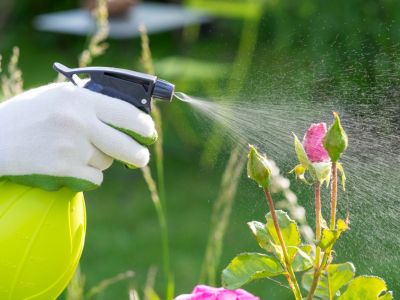Are Pesticides Bad for Plants?
Are pesticides bad for plants? They certainly can be. Insecticide plant injury, or actually any kind of chemical plant injury, is known as phytotoxicity. Herbaceous plants are most vulnerable to pesticides. Woody plants tolerate them better, but new fresh growth can be damaged by these chemicals. Exactly how and to what extent you harm a plant with a pesticide depends on the type of chemical, the plant, and other factors. Possible signs of insecticide damage to plants include:
Leaf burnLeaf dropDiscolored leavesCurled leavesAbnormal plant growthPlant death
How to Prevent Pesticide Plant Injury
For many reasons, from protecting pollinators to protecting the plants in your garden, limiting chemical pesticide use is important. Only use a non-organic, chemical pesticide if you have a real issue that you cannot manage another way. This will prevent a lot of plant damage. If you do choose to use a chemical insecticide, follow these rules to prevent or minimize damage to plants:
Read the labels and choose the right chemical for the job. Make sure the pesticide actually kills the pest you’re targeting. Read labels on systemic insecticides carefully. These pesticides are taken up by the plant so that when insects feed on them, they die. If using this type of chemical, make sure it is safe for the plant and targets the right pests. Always follow the directions on the pesticide for how to use it, how much to use, and how frequently to use it. Avoid using pesticides on windy, hot days. The wind causes pesticide drift, causing harm to more distant plants. Hot, sunny weather increases the risk that an insecticide will damage a plant. If a target plant is very close to other vulnerable plants, put a barrier around it before spraying.
Whenever possible, try a different solution. There are many effective controls for pests that do not include chemicals harmful to plants, such as biological controls, horticultural oils, and insecticidal soaps.
